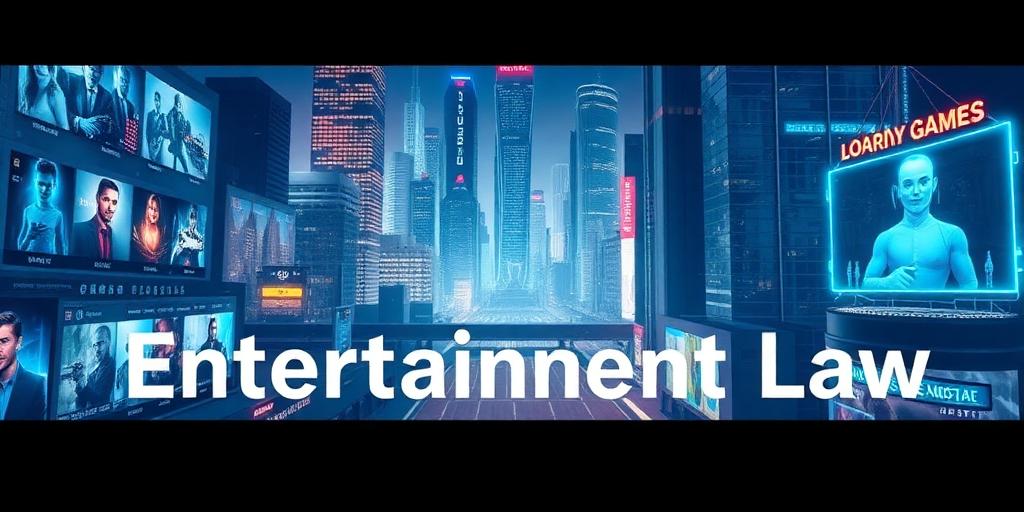The Future of Entertainment Law in 2025
The entertainment industry is in constant flux, driven by technological advancements, shifting consumer behavior, and evolving business models. As we look ahead to 2025, entertainment law must adapt to address these changes. This article explores key trends and challenges shaping the future of entertainment law.
Key Trends Shaping Entertainment Law
- The Rise of Streaming and Digital Distribution
The dominance of streaming platforms has fundamentally altered content distribution. This shift necessitates new legal frameworks to address:
- Rights Management: Ensuring creators and rights holders are fairly compensated in the digital landscape.
- Piracy and Illegal Streaming: Combating the unauthorized distribution of content.
- Global Licensing: Navigating the complexities of licensing content across different territories.
- The Metaverse and Virtual Entertainment
The metaverse introduces novel forms of entertainment, raising complex legal questions about:
- Intellectual Property: Protecting virtual creations and performances.
- Digital Rights: Defining ownership and usage rights for virtual assets.
- User-Generated Content: Regulating content created by users within virtual environments.
- AI and Content Creation
Artificial intelligence is increasingly used in content creation, from generating scripts to composing music. This raises questions about:
- Copyright Ownership: Determining who owns the copyright to AI-generated works.
- Liability: Addressing potential liability issues arising from AI-created content.
- Ethical Considerations: Ensuring AI is used responsibly in creative processes.
- Esports and Gaming
Esports and gaming have exploded in popularity, creating new legal challenges related to:
- Player Rights: Protecting the rights and welfare of professional gamers.
- Sponsorship and Endorsement Agreements: Regulating commercial relationships in the esports industry.
- Gambling and Betting: Addressing legal issues related to esports betting.
Challenges for Entertainment Lawyers
- Keeping Pace with Technology: Entertainment lawyers must stay informed about the latest technological developments and their legal implications.
- Adapting to New Business Models: The industry is constantly evolving, requiring lawyers to adapt their expertise to new business models.
- Navigating Global Regulations: Entertainment law is increasingly global, requiring lawyers to understand and navigate different legal systems.
Preparing for the Future
To succeed in the future of entertainment law, legal professionals should:
- Develop Expertise in Emerging Technologies: Gain a deep understanding of technologies like AI, blockchain, and virtual reality.
- Cultivate a Global Mindset: Be prepared to work on international deals and navigate complex legal frameworks.
- Embrace Continuous Learning: Stay up-to-date with the latest legal developments and industry trends.
Conclusion
The future of entertainment law in 2025 and beyond will be shaped by technological advancements and evolving business models. Entertainment lawyers who can adapt to these changes will be well-positioned to thrive in this dynamic industry.
